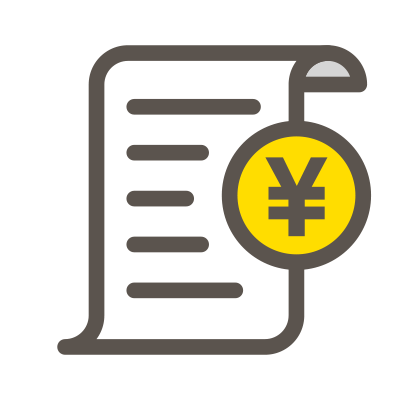 Tax
Tax
Too many type of Japanese tax
Income tax
When you earn money through employment, tax will be deducted from your pay/salary.
Goods and services tax
When you buy goods (e.g. food) or receive services from a business you will be charged tax included in the price.
Tax for cars
When you buy or own a car, you will be charged tax. In addition, Vehicle Weight Tax will be charged at the time of your regular car inspections.
Tax when owning property
When you buy or own real estate, you will be charged tax.
Public insurance and other fees
On top of paying taxes there are other fees and payments you are expected and required to pay while living in Japan.
Resident vs Non-Resident
Defining a resident and a non-resident for tax purposes
You are a resident when: “There is ‘an address’ in Japan, or that defines the individual’s ‘whereabouts’ as a resident in Japan, continuously for more than one year. When considering the definition of ‘an address,’ this is generally judged on whether the address is ‘the base of your life’. In contrast a ‘place of residence,’ is considered to be “the place that is not your base, but where the person lives in practice”.
You can be considered a resident based on completing a “Resident Registration“.
You can be considered a resident based on the requirements of your job, if you have a contract with an employer to work in Japan for more than one year, it will be assumed that you will also therefore live in Japan for at least a year and so will be considered a resident. If you are employed for a winter period only you are a non-resident. If you have a Working Holiday Visa you are a non-resident.
Japan does not have clear boundaries, and it is very unclear at what point in time a non-resident becomes a resident, for example, when a fixed-term employment of less than a year ends but you continue to work in Japan.
When you are contracted by a company located in your own country to work in Japan, this situation is judged based on it whether taxable activity, such as recieving payment, is completed in Japan.
You can be considered a resident based on completing a “Resident Registration“.
You can be considered a resident based on the requirements of your job, if you have a contract with an employer to work in Japan for more than one year, it will be assumed that you will also therefore live in Japan for at least a year and so will be considered a resident. If you are employed for a winter period only you are a non-resident. If you have a Working Holiday Visa you are a non-resident.
Japan does not have clear boundaries, and it is very unclear at what point in time a non-resident becomes a resident, for example, when a fixed-term employment of less than a year ends but you continue to work in Japan.
When you are contracted by a company located in your own country to work in Japan, this situation is judged based on it whether taxable activity, such as recieving payment, is completed in Japan.
Tax in Japan
“Income tax” for non-residents is 20.42% of income and is deducted from your pay/salary. Income tax for residents is cheaper, the amount of tax varies depending on income and living expenses (food) for your family
If you are non-resident and renting your property, tax is 20.42% of income, and when you sell, tax on the sale of the property is 10.21%.
If you are non-resident and renting your property, tax is 20.42% of income, and when you sell, tax on the sale of the property is 10.21%.
Notes on tax
Even non-residents must take out “social insurance” if they meet the requirements.
You may mistakenly think you don’t need to pay “Resident Tax” and “Type.1 National Health Insurance“, simply because you left Japan before you recieved a payment statement. It is up to you to comply with all laws and ordinances, your employer may not have enough knowledge to have completed your tax correctly.
You may mistakenly think you don’t need to pay “Resident Tax” and “Type.1 National Health Insurance“, simply because you left Japan before you recieved a payment statement. It is up to you to comply with all laws and ordinances, your employer may not have enough knowledge to have completed your tax correctly.
Let’s challenge ourselves to lower our taxes.
Filing a tax return
You should file a “Final Tax Return” if you are not satisfied with the “Year-end Tax Adjustment” completed through your workplace.
you should file a tax return if you have income in addition to your pay/salary, or if you have “Income Deduction” that you did not declare in a “Year-end Tax Adjustment“, see “Final Tax Return“.
Many people overlook the subtraction of medical expenses, approved contributions and home loans.
Whether or not you recieve a refund depends on your declarations in a Final Tax Return, but is also affected by any Resident Tax and National Health Insurance Premiums due.
Even if you have to pay extra taxes we still recommend you to file a Final Tax Return ; Japan’s national tax organization is not forgiving.
you should file a tax return if you have income in addition to your pay/salary, or if you have “Income Deduction” that you did not declare in a “Year-end Tax Adjustment“, see “Final Tax Return“.
Many people overlook the subtraction of medical expenses, approved contributions and home loans.
Whether or not you recieve a refund depends on your declarations in a Final Tax Return, but is also affected by any Resident Tax and National Health Insurance Premiums due.
Even if you have to pay extra taxes we still recommend you to file a Final Tax Return ; Japan’s national tax organization is not forgiving.



